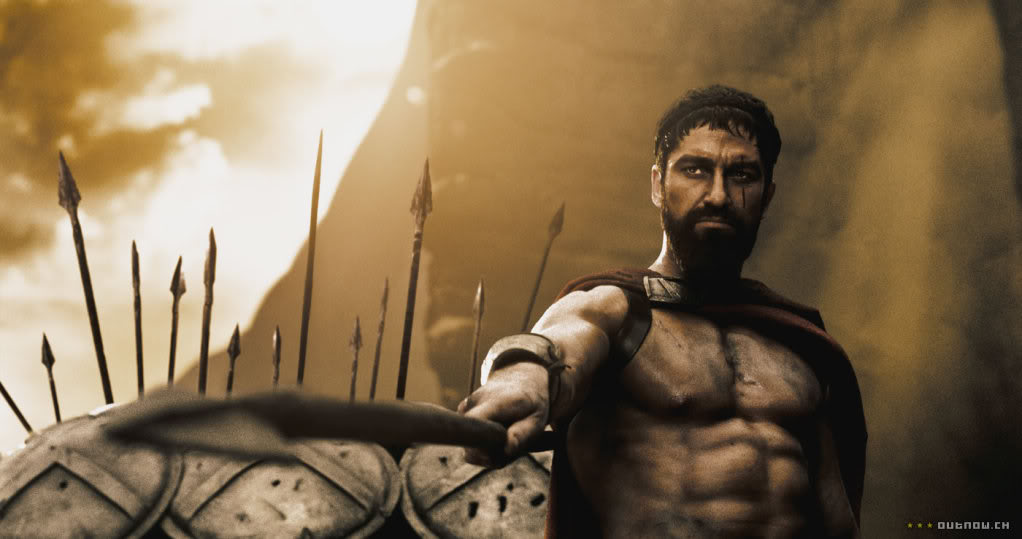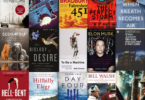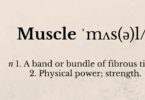First, a quick compare-and-contrast exercise. Here’s a selection of quotes from King Leonidas, leader of the Spartans at the battle of Thermopylae, from the film 300:
King Leonidas: This is where we hold them. This is where we fight! And this is where THEY DIE! Remember this day, men, for it will be yours for all time! Give them NOTHING! But take from them EVERYTHING!
Super. Now, here’s Steven Pressfield’s account of a post-battle chat from King Leonidas, from his excellent take on the same story, Gates Of Fire.
Leonidas sought to instil courage not by his words alone but by the calm and professional manner with which he spoke them. War is work, not mystery. The king confined his instructions to the practical, prescribing actions which could be taken physically, rather than seeking to produce a state of mind, which he knew would evaporate as soon as the commanders dispersed beyond the fortifying light of the king’s fire. ‘Look to your grooming, gentlemen. Keep your hair, hands and feet clean. Eat, if you have to choke it down. Sleep, or pretend to. Don’t let your men see you toss. If bad news comes, relay it first to those in grade above you, never directly to your men. Instruct your squires to buff each man’s aspis to its most brilliant sheen. I want to see shields flashing like mirrors, for this sight strikes terror into the enemy. Leave time for your men to sharpen their spears, for he who whets his steel whets his courage.’
Which of these is closer to how Leonidas really acted? Maybe both: it’s possible he got all frothed-up before a fight and was calm and collected afterwards. Maybe neither. Which would be more successful? Almost certainly the second one. More on why in a second.
If you’ve got six and a half minutes, listen to this speech from Eric The Hip-Hop Preacher. If you haven’t got six minutes to watch the video – or you’re at work, or something – it’s about a guy who meets a guru who promises to teach him the secrets of success, then meets him at the beach and (spoilers!) holds his head underwater until he almost drowns. The moral:
When you want to succeed as much as you want to breathe, that’s when you’ll be successful.
That’s great, right? Lots of people think so. Eric the hip-hop preacher tells this story very well, by the way, and adds in some stuff about how you should want success more than you want to party, sleep, and so on. It really is worth listening to. It’s a great story, memorable, you’d probably be able to repeat it almost word-for-word tomorrow or in a week. Eric’s built a career on this sort of thing, preaching to his ministry, and to baseball players and MMA fighters. Bear all that in mind, and then answer one question:
What the fuck does that actually mean?
I thought that little parable was amazing the first time I heard it, and the second. Then I thought about it, and realised that there’s no advice there. None at all. Needing to breathe is an inbuilt human response: it’s not something you think about. How do you get so hyped about ‘being successful’ (whatever that means) as ‘needing to breathe’? You can’t. It’s literally impossible. The moral, if there is one, is that you should probably party a bit less, and, I don’t know, read some books or something.
Here’s the Leonidas Paradox: motivational yelling sounds good on film, it’s fun for actors to do, it makes for memorable moments…and it’s considered close to useless by everyone who’s actually successful in what they do. Consider John Wooden, whose 88-game unbeaten streak in NCAA basketball puts him in consideration for being one of the greatest athletics coaches of all time in any sport. Wooden, to be fair, did some motivational speaking. But did he lead his teams to victory with a load of eye-rolling, Pacino-style speeches?
Nope. He did it with advice. Thousands and thousands of tiny chunks of advice, delivered in a constant stream. At the start of the season, he’d tell his athletes how to put their socks on – partly so they wouldn’t get blisters and have to miss practises, partly to help them understand the necessity of detail. In practise, he’d keep it short: ‘Hard, driving, quick steps.’ ‘Crisp passes, snap them.’ ‘Take the ball softly – it’s a pass, not an interception.’
The common thread? Every one of those would leave no doubt in a player’s mind about what they were supposed to do. Did they need to want to be good at basketball more than they wanted to breathe? No, they just needed to get better at basketball, through targeted advice. Listen to Greg Jackson – widely considered to be one of the best MMA coaches in history – when he’s cornering a fighter sometime. Is he yelling ‘How bad do you want this?’ No. He’s giving digestible, actionable advice: ‘Watch his right hand.’ ‘Angle off after you throw a punch.’ ‘He’s open to the double-leg.’ Can you remember a fight where Greg Jackson started yelling motivational slogans? The only one that springs to mind for me is Cowboy Cerrone vs Nate Diaz, where Cerrone finishes round two looking battered, and Jackson comes to life. ‘Give me two minutes of hell, son!’ he yells, as Cerrone stands in front of Diaz, all the fight clearly gone out of him. ‘You give me two minutes of hell!’
More spoilers: Cerrone loses.
Look at Pressfield-Leonidas again. He’s a great leader, sure. He’s not above a joke, a bit of bonhomie, or a growled bon-mot. But when it comes down to it, he knows that what wins fights isn’t rhetoric: it’s advice about keeping your kit clean.
If you’re starting a new business, or a novel, or learning a new skill, or holding the Persians at a narrow pass while you wait for the Greek army to gear up, do you need someone to yell at you? No, you need someone who can give you advice. What motivates you isn’t always what works. War is work, not mystery.
HOMEWORK: Read Dan Coyle’s The Talent Code for a more in-depth look at how John Wooden actually worked. And this week, instead of pinning up motivational phrases, pin up an actionable thing that you’ll know whether you’ve done or not at the end of every day. It could be eating five pieces of veg, practising at codeacademy.com, or doing 100 press-ups. You don’t need to want success more than you want to breathe – you just need to do the thousands of tiny things that’ll make you successful – whether you’re motivated or not.








Hm..interesting
To me the speech is about prioritization rather than motivation. You aren’t going to work as hard to make something work until you put that goal on the top of your list. It doesn’t have to be the only thing on your list, nor does it necessarily need to be #1. If it’s up there, it’s important to you, and you will naturally put in effort. As long as this effort lasts, it will lead to many different innovations, or “tiny things”
Absolutely! I like my phrases hanging around, to remind me of what I want, but action makes me feel really good. Breaking the big picture down, into manageable steps, means I’m on the path. There is that study Malcom Gladwell talks about that you need 10,000 hours doing something to become an expert/really good. That means 1 hour plus 1 hour plus..Thanks for reminding me!
Yeah a good phrase to reference. I agree 100%. I don’t think it even takes motivation to ask sometimes. It’s the advice that leads onto motivation. Sorta pushes you forward. That’s why before I run any half marathon or compete in my local netball tournament i’ll get the advice I need from my Learncliki adviser. Or my mum, ha!
Just finished The Power of Habit recently, motivation is a habit. it’s a “muscle” that can be trained. There’s no such thing as “willpower”. Just people who do and people who don’t.
[…] chunks. I’ve read several books that have hammered on about this, as well as dozens of blog posts, and it’s something the business coach I worked with in the summer was very keen on. The theory […]
I heard that Eric Thomas speech a couple of years ago. That particular phrase “When you want to succeed, as bad as you want to breathe.. then you’ll be successful” has been stuck in my head ever since, not that I use it everyday, but when I’m struggling to go the extra KM or do that extra rep my god that quote helps me. I hate to assume, but do you not exercise? I can’t imagine how anyone who does exercise can’t understand this quote. Sure, we’ll get all logical and scientific and say no that’s not possible to want to be successful as bad as you want to breathe. That’s not what the quote is meant for though!
It’s setting a bar for how bad you want something, and it’s always better to set the bar to high and fall short than set it too short and hit it. Obviously it isn’t for every aspect of life I know… But when you’re jogging 10KM, in preparation for a marathon and you’re going into the 8th or 9th KM and you’re struggling to breathe and your starting to slow.. rationalising how it’d be ok to stop and walk the rest of the way and you’d do it tomorrow or the next day that is when things are put in perspective. I would say that quote in my head over and over until I reach my goal, it would make me breathe harder and push harder… and if you can’t understand that, or use it… then motivational videos aren’t for you.
They aren’t something to live by, they’re to pump you up to get you started.. or when you’re nearly finishing to give you that extra push not carry you the whole way or change your life.
There is no paradox here, you get pumped up but you still need to rely on your own will power, habits and character to be successful. Stop being so critical 🙂
Hey Sean, thanks for commenting. If that Eric Thomas speech works for you: great! I hope it keeps working, and you achieve whatever you’re looking for. And I think you might be right: motivational videos might not be for me, because I think that, in the long run, habits and systems trump motivation. Sorry if you don’t agree. And yes, I do exercise: that’s kind of what a lot of my other posts are about…